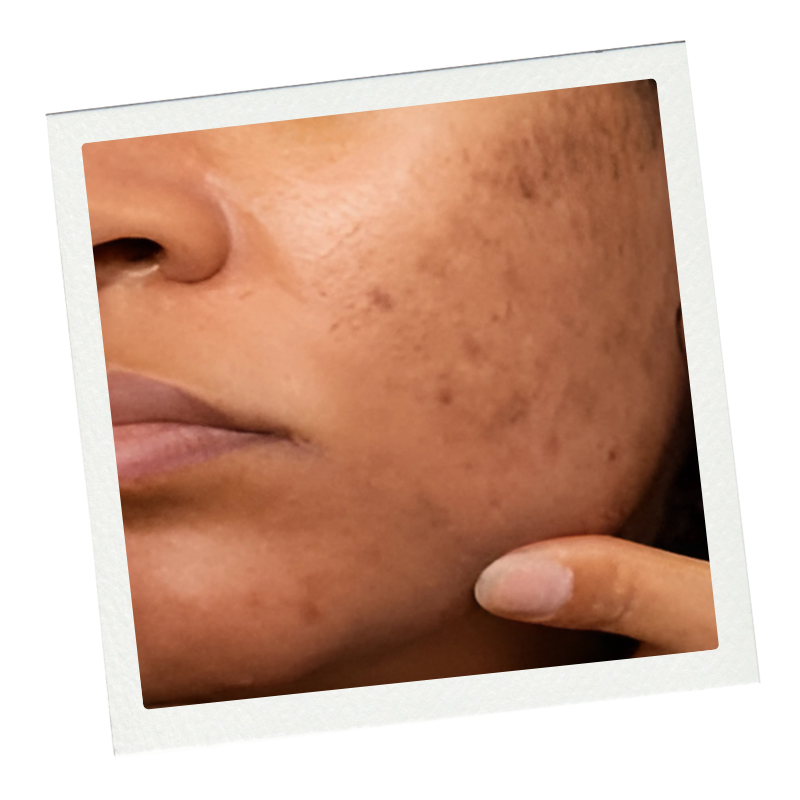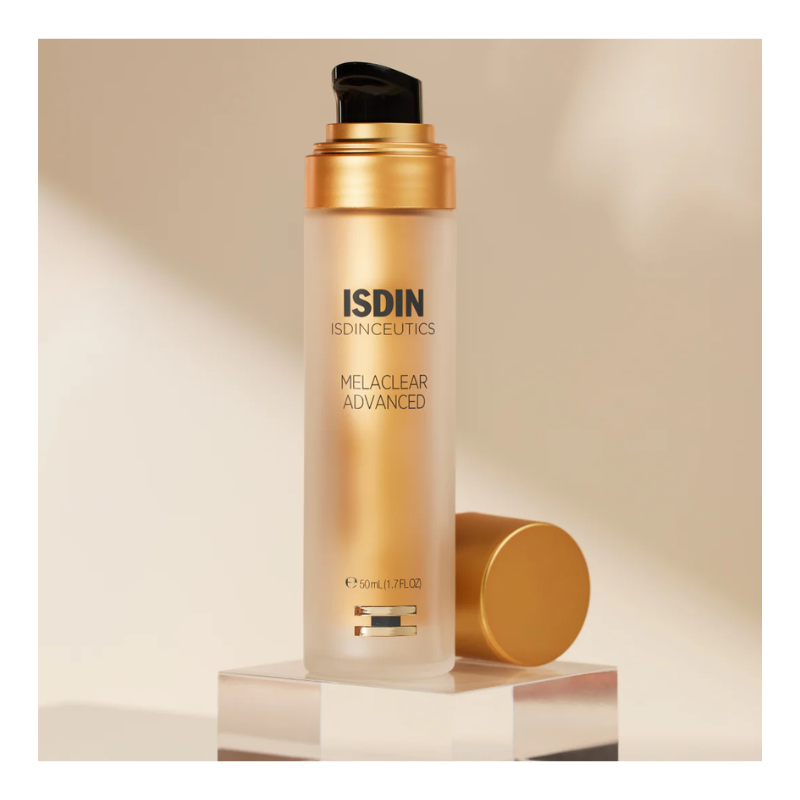Even-Toned, Radiant Skin
UNDERSTANDING & TREATING PIGMENTATION
Pigmentation and brown spots are one of the most common skin concerns we see, and they can show up in a variety of ways. From stubborn melasma that often worsens with sun or hormonal changes, to lentigines (sunspots) caused by cumulative sun exposure, to the dark marks left behind after breakouts known as post-inflammatory pigmentation, uneven tone can affect how your skin looks and feels.
The good news? Pigmentation is treatable. At SKN, we create personalized plans that often combine prescription medications, medical-grade skincare, and in-office procedures to improve clarity, brightness, and overall skin health.
In this blog, we’ll explore:
The different types of pigmentation and what causes them
Proven treatments, from prescription medications to procedures
Our favorite in-office option: IPL laser
A featured product to help boost your results at home
A closer look at pigmentation
While pigmentation may look similar on the surface, the underlying causes are very different, which is why a one-size-fits-all approach rarely works.
Melasma
Melasma appears as brown or gray-brown patches on the face, most often on the cheeks, forehead, and upper lip. It’s strongly linked to hormonal changes and can be persistent without long-term management.
Triggers: Hormonal shifts (pregnancy, birth control, menopause), sun exposure, heat, and genetics.
Treatment Outlook: Melasma requires a gentle, consistent approach. Prescription topicals and pigment-regulating skincare are often combined with sun protection and periodic in-office treatments to keep it under control. Quick fixes usually don’t work, and aggressive procedures can sometimes make it worse.
Lentigines (Sun Spots or Age Spots)
Lentigines are small, flat, brown spots that develop in sun-exposed areas like the face, chest, and hands. They’re harmless but often a cosmetic concern, as they signal cumulative sun damage.
Triggers: Years of UV exposure, tanning beds, and lack of consistent sunscreen use.
Treatment Outlook: Lentigines respond well to treatments like IPL, chemical peels, and prescription or medical-grade brightening products. With the right plan, they can fade significantly, and ongoing sun protection helps prevent new ones.
Post-Inflammatory Pigmentation (PIH)
PIH develops after skin has been injured or inflamed. It commonly shows up as dark spots following acne, eczema, or even minor cuts or scrapes.
Triggers: Acne breakouts, skin conditions (eczema, psoriasis), rashes, bug bites, or any injury that causes inflammation.
Treatment Outlook: PIH often fades over time, but targeted treatments can speed the process. Skincare with exfoliating acids, antioxidants, and pigment inhibitors work well, and in-office options like chemical peels or microneedling can accelerate results.
TREATMENT OPTIONS
Managing pigmentation involves reducing existing discoloration and preventing new spots from forming. At SKN, we may recommend:
Prescription medications such as hydroquinone or compounded topical blends that regulate pigment production.
Medical-grade skincare, including antioxidants, vitamin C, and pigment inhibitors, to protect skin and maintain results.
In-office procedures, such as chemical peels, microneedling, and IPL, target pigment more aggressively and deliver visible improvements.
Pigmentation care works best when these options are thoughtfully layered and tailored to your skin’s unique needs.
Treatment Spotlight: IPL Laser
One of our most effective tools for pigmentation is Intense Pulsed Light (IPL) therapy. This non-invasive procedure delivers precise pulses of light into the skin, targeting areas of excess pigment without damaging surrounding tissue. The pigment absorbs the light, breaks apart, and is naturally eliminated by the body over time.
IPL is especially effective for:
Brown spots and age spots
Uneven tone caused by sun damage
Redness and broken capillaries
With a series of treatments, IPL can dramatically brighten the complexion, fade stubborn pigmentation, and even stimulate collagen for smoother, healthier-looking skin. Many patients notice a more radiant and youthful glow after just a few sessions. Because IPL works best when sun exposure is limited, fall and winter are the ideal seasons to begin this treatment series.
Product Highlight: ISDIN Melaclear Advanced
Daily skincare plays a crucial role in managing pigmentation, and one of our top recommendations is ISDIN Melaclear Advanced. This targeted serum combines powerful brightening ingredients like vitamin C, tranexamic acid, and phytic acid to:
Reduce the appearance of existing dark spots
Prevent new pigmentation from developing
Restore luminosity and evenness to the skin
When used consistently, Melaclear Advanced helps extend and enhance the results of in-office procedures like IPL. It’s a cornerstone product for patients looking to actively improve skin clarity and maintain long-term results.






